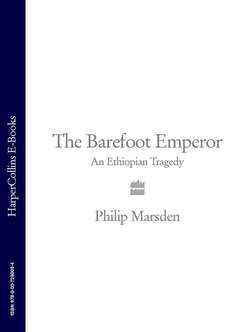Читать книгу The Barefoot Emperor: An Ethiopian Tragedy - Philip Marsden - Страница 27
Оглавление14
One of the first letters Tewodros sent after his coronation in 1855 was to Samuel Gobat, Anglican bishop of Jerusalem. Gobat had been a missionary in Ethiopia some twenty years earlier, but had been forced out by the country’s paralysing instability. Like others, he had watched the emergence of Tewodros and felt the chance had come again – not for him, but for a new generation of evangelical workers.
Tewodros, however, was asking him for artisans and craftsmen. He certainly did not want priests. ‘You know the situation of our country. It is where you lived. It has been divided, one against another, even into three. Now, by the power of God, I have unified it, so now let not priests who disrupt the faith come to me … of workers, let one who ploughs with a fire-wheel come, bringing the engine with him to me. I have heard people say that it exists.’
Eight months later, Samuel Gobat stood before the Anglican congregation on Mount Zion in Jerusalem. Seven fresh-faced, Swiss-trained missionaries gazed up at him.
‘Beloved brethren,’ he began, ‘the hour has come for which you have for some years been preparing yourselves, the hour for parting with the Christians in whose circle your spiritual life has been developed.’
The bishop was a solid and portly man. A great bib of a white beard hung down his chest. In his address, he drew on his own experience in the field years earlier.
‘Now, you will have to lean on the Lord in your weakness, in a land that is covered with darkness, and among a people who are still in the shadow of death. If you have ever felt and understood your infinite weakness and helplessness, as every one must into whose soul a ray from the Sun of Righteousness has penetrated, you must increasingly feel it in this solemn hour, as you see before you the difficulties of the journey and the deep degradation of the people to whom you are going …’
But with their own deviant version of Christianity, the Ethiopians were a people not entirely without redemption.
‘According to the ideas of the present king, who himself reads the Bible in his own language, and according to the practice of the Abune Selama, I do not think you will have any obstacle in spreading the Word of God. Judging by my own experience, I believe that many an Abyssinian will receive the Bible with thankfulness.’
He did warn them of the ambiguity that lay behind their mission.
‘Do not put to the king direct questions, so as to get decisive answers, as to whether you may settle in his country as messengers of salvation. The better plan will be not to bring the matter forward, nor seem anxious about it, but try first to persuade and convince the king through your behaviour, that you are true Christians who are led by the Spirit and the Word of God.’
Gobat believed that in Africa a great new world of evangelism was opening up. He and his committee planned an ‘Apostelstrasse’, a series of twelve stations between Egypt and Ethiopia which would help supply the Ethiopian mission, as well as radiating the Word of God from each station.
‘The field that lies desert before you, and must be worked and turned into a garden of God, is a wide, almost immeasurable field. It not only includes all Abyssinia, but the neighbouring heathenish Galla tribes, and the whole centre of Africa, of which Abyssinia is only the entrance. There the devil has his kingdom, and for thousands of years it has been allowed to go on quietly and undisturbed beneath his government.’
He concluded by reminding them that they were invited as artisans, and that their missionary activity should be covert.
‘You may feel it strange and disagreeable to hear that instead of preaching and baptising you are asked to work with your hands, and partly to earn your own living. The devil will whisper to you, and your own hearts will answer him loudly enough: “Work and earn our bread, live and die, we could have done in Germany, without the long preparation, and without going to wild Abyssinia.”’
Three of the men were so alarmed by Gobat’s portrait of wild Abyssinia that they pulled out. Among the others there were reservations. Only two out of the seven – Mayer and Kienzlen – set off for Ethiopia with anything approaching enthusiasm.
